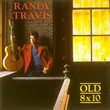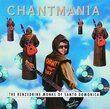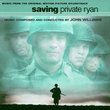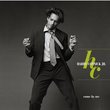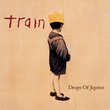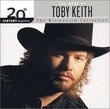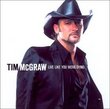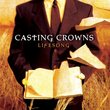| All Artists: Chicago Title: Chicago VIII Members Wishing: 9 Total Copies: 0 Label: Rhino / Wea Original Release Date: 1/1/1975 Re-Release Date: 11/5/2002 Album Type: Original recording reissued, Original recording remastered Genres: Pop, Rock, Classic Rock Style: Album-Oriented Rock (AOR) Number of Discs: 1 SwapaCD Credits: 1 UPC: 081227617820 |
Search - Chicago :: Chicago VIII
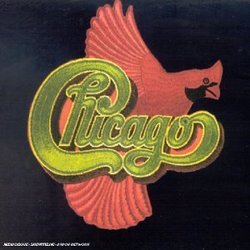 | Chicago Chicago VIII Genres: Pop, Rock, Classic Rock
Expanded & Remastered features the original albums 10 more pop-oriented tracks, including the hits 'Old Days,' 'Harry Truman' and 'Brand New Love Affair.' Also includes 3 bonus tracks 'Sixth Sense' (rehearsal versio... more » |
Larger Image |
CD DetailsSynopsis
Album Description Expanded & Remastered features the original albums 10 more pop-oriented tracks, including the hits 'Old Days,' 'Harry Truman' and 'Brand New Love Affair.' Also includes 3 bonus tracks 'Sixth Sense' (rehearsal version), 'Bright Eyes' (rehearsal version) & 'Satin Doll' (live, 1974). Rhino. 2002. Similarly Requested CDs
|
CD ReviewsNew life for a neglected album classicrock | Orlando, FL | 11/15/2002 (4 out of 5 stars) "Chicago VIII is probably the most overlooked of the Terry Kath-era albums. It was their fourth straight Number One album, but it had the shortest chart run of anything up to this point. Critics viewed it as just more "product" and a lot of fans were probably turned off by a subtle change in the band's sound. While it still sounded like Chicago, this album pretty much does away with the experimentalism they had been known for when they started out. Still, Chicago VIII shows definite signs of artistic growth (despite what the critics said). There is a good mix of everything from R&B to hard rock to ragtime to string-drenched balladry. Songs like "Hideaway" and "Oh Thank You Great Spirit" were probably a bit heavy for the average Chicago fan's taste (I can't even imagine what someone who came on board in the 80's would think!). "Harry Truman" and "Long Time No See" employed the horns in ways that were very different from the by-then traditional "Chicago Horns" style. And, most surprisingly, "Hideaway", "Till We Meet Again", and "Oh Thank You Great Spirit" had no horns at all. Overall, VIII is a good album, but it definitely reflects the fact that Chicago was a very tired band (they had been touring or recording almost constantly for the past 7 years or so). There is a certain mellowing of the band, which actually started with VI and continued on VII. But, hey, it was the mid 70's, after all. Even Zeppelin mellowed out.Tired or not, Chicago was definitely on a creative roll. They were often unfairly labeled as "slick" or "uninspired" because it was almost too easy for them to turn out great music. Standout tracks on VIII are "Hideaway", "Harry Truman", "Oh Thank You Great Spirit", "Ain't it Blue?", and the #5 hit "Old Days". But all of the songs are of good quality. Terry Kath dominates this album more than any other Chicago record (his vocal on "Brand New Love Affair Pt. 1" is excellent, and his guitar playing is superb throughout the record). While it might have been perceived at the time as a letdown after the sprawling Chicago VII, this album was nothing to be ashamed of. And now it's finally been given the proper CD treatment by Rhino.Rhino does a fine job with the re-release of Chicago VIII. The sonics are much improved over the original, muddy-sounding CD issued by Columbia as a "Collectors Choice" mid-priced item in the mid 80's. Chicago VIII was definitely the flattest-sounding album the band made with James William Guercio, but the new remastering job by Rhino makes it sound as good as anything else from 1975. In addition to bad audio, the Columbia issue of VIII (along with most of Chicago's other Columbia CDs) also had horrendous packaging. When Chicago Records came along in the 90's, all they did was substitute "Columbia" with "Chicago Records" on the so-called reissued discs; the sound and packaging are exactly the same. Rhino didn't have to try very hard to improve the packaging. Thankfully, they did try (although there is a sense that the company accountant was part of the project team - keep reading for my thoughts on that). The red cardinal iron-on patch logo is restored to its prominence on the cover (Unfortunately, there is no real iron-on patch in the case; that would have been a nice surprise for fans). The liner notes by Phil Gallo do a good job of summing up the band's state of mind during the time of the sessions for Chicago VIII. Also included in the booklet is a small reproduction of the poster that came with the original LP. This was the first of the humorous police-chase pictures that would be featured on every album until XI. This one has the band and their equipment stuffed into an old woody station wagon, as they attempt to flee a motorcycle cop. My only real complaint with this, as well as the previous Rhino reissues, is that I wish the CD itself had been labeled the same as the original LP, instead of using a generic Chicago logo and bland background color. It makes me think that Rhino was trying to cut corners to save a couple of pennies (And also, they could have included more pictures and recording information, but you can't have everything).The real treat, of course, is the Bonus Selections. They are: "Sixth Sense" (Rehearsal) - A cool jazzy instrumental that would have sounded at home on the first LP in Chicago VII, which is probably why it was never developed for VIII. It's a good track, however; especially if it really is a rehearsal. "Bright Eyes" (Rehearsal) - A Latin-tinged song that sounds like an outtake from Robert Lamm's 1974 solo album Skinny Boy. Lyrically, it's not fully developed, but it's actually better than several songs on Skinny Boy. Electric piano and skittering guitar are the dominant instruments. As with "Sixth Sense", if this is a rehearsal, these guys are damn good musicians! "Satin Doll" - Recorded Live for Dick Clark's Rockin' New Years Eve in late 1974. This is an old Duke Ellington instrumental that the band "used to have to play every night", as Lamm tells the audience. Nothing spectacular, but it's another tight arrangement that shows how good this band was.I give this reissue a 4-star rating mainly because of the above-mentioned packaging omissions and/or cost-cutting measures. I think if Rhino had spent another 15 cents or so per CD, they could have made it a 5-star. The sound quality certainly rates a 5 and the performance is good for a 3 or 4. The Bonus Selections aren't essential, but even a casual Chicago fan will like having them." Solid Chicago and a true '70's classic Rik22 | New York | 04/19/2003 (4 out of 5 stars) "When this disc was released in 1975, Chicago was at the peak of their popularity. After coming off of the success of the two-disc Chicago VII in which the band which explored true jazz styles while pulling off three great hit singles (Wishing You Were Here, Call On Me & Searchin' So Long) Chicago was criticized for returning to a one-disc format and settling into a pop-rock style. The group released Chicago IX-Greatest Hits later in 1975 which was a huge hit and, in 1976, Chicago X was released which included the meg-hit "If You Leave Me Now". Thus, this CD is sometimes forgotten in this legendary band's immense catalogue, but it shouldn't be. Although I bought Chicago VIII On vinyl as a kid in 1975, I still pull this disc out often as it is really quite good. "Old Days" may be Chicago's defining pop radio hit in the 1970's (I know, there are many, so don't shoot me!!) and still sounds great and innovative when it comes on the radio today. The blend of of Tery Kath's distortion power chords kicking open the tune, with the song's incredibly infectious melody, and Peter Cetera's soaring tenor just breezed through everyone's radio in the summer of 1975, at a time when long-since-forgotten bubble gum pop ruled the air. Chicago's "secret weapon", however, separated this tune from everything else that was popular on the radio: drummer Danny Seraphine. Unlike guitarist Terry Kath, who never received proper music industry recognition as a true stylist and innovator on his instrument, Danny has gone down in history as one of rock's all-time great drummers. He appraoched "Old Days" with "no holds barred" and just rips through this song with his incomparable stylistic drum fills. Danny does some amazing work on the rest of VIII as does the rest of the band. The Chicago horns are in fine form with trombonist Jimmy Pankow penning some catchy charts for the legendary horn section. Terry lays down some wild rhythm guitar parts on virtually every song and really let's loose on "Oh Thank You Great Spirit". This is a tribute to Jimi Hendix that contains no horns. Terry explores unique textures and then blazes through a double-tracked solo when the tune goes into double-time tempo. This track alone makes the CD worth buying as it is a definitive Terry Kath performance. Other notable moments are the two-part " Brand New Love Affair" that finds Terry singing a tuneful Jimmy Pankow ballad done in Big Band style. Part II kicks into high gear with the Chicago horns power-housing over Kath's distinct wah-wah rhythm guitar parts with Danny Seraphine, again, just ripping through the chart. This Rhino reissue contains the most interesting bonus tracks of any of their Chicago reissues to date: "Sixth Sense" recorded live in the studio, is a carryover from Chicago VII with the group exploring some cool jazz style instrumental with a nice horn melody and some great Terry Kath guitar work. Lee Loughnane adds an interesting trumpet solo as well. "Bright Eyes" another song recored in a rehearsal setting finds Robert Lamm in his finest lounge crooner style doodling away on a Fender Rhodes. This song sounds like the beginning of what may have developed into "Another Rainy Day in New York City" on Chicago X. Finally, "Satin Doll" recorded live on Chicago's 1974 New Years' Eve television special unfortunately isn't anything special. The group sounds like a typical wedding band pulling off a stale version of this Ellington classic. But that should not dissuade one from purchasing this disc. Chicago VIII is classic Chicago and is certainly a worthwhile release from this truly amazing band." Give this one a chance! Brian Christie | Montreal, Canada | 11/07/2002 (5 out of 5 stars) "Released in March 1975 after a whirlwind of years of non-stop activity, Chicago's eighth album has taken some beatings over the years and has become known as one of their weaker efforts, but when you listen to it for what it is (a tight, yet crunchier collection of tight pop/rock songs), it really hits the spot. In particular, it makes a GREAT case for Peter Cetera's talents for writing hard rock songs as "Anyway You Want" and, especially, "Hideaway" amply demonstrate (none of the ballads here were authored by Pete - so much for his stereotype as a schmaltzy balladeer). CHICAGO VIII quickly hit # 1, though it was their final chart-topping studio album (the first greatest hits collection from Fall 1975 took the top position too - but that was their last ever chart-topping long-player). In their peak year (1975), all previous Chicago albums came crashing back onto the U.S. charts while their concerts became huge events. However, after the initial rush of success, CHICAGO VIII's chart run was their briefest one yet (merely 29 weeks, while CHICAGO VII lasted 69) and seemed to imply that this was a letdown. Not so. I love this album. Perhaps Chicago had a self-conscious urge to compensate for their instrumental jazz indulgences on the previous album and wanted a tight, concise album with less of their trademark horns. And only two of the three singles from this disc were sizeable hits: Robert Lamm's "Harry Truman" (written in the aftermath of Nixon & Watergate) made # 13, while James Pankow's "Old Days" was the smash, hitting # 5. "Brand New Love Affair", a gorgeous recording with a marvelous Terry Kath vocal, somehow missed the boat, floundering at # 61. So seeing as only one song was a huge hit, many may have found CHICAGO VIII commercially light. Don't be fooled by the stats. "Till We Meet Again", "Never Been In Love Before" and "Ain't It Blue?" are all fine tracks, and Terry's "Oh, Thank You Great Spirit", the only track where indulgences were allowed, seemed to be a Jimi Hendrix tribute of some sort. Give CHICAGO VIII a chance. It only contributed to their wealth of great music and any Chicago collection is incomplete without it."
|

 Track Listings (13) - Disc #1
Track Listings (13) - Disc #1